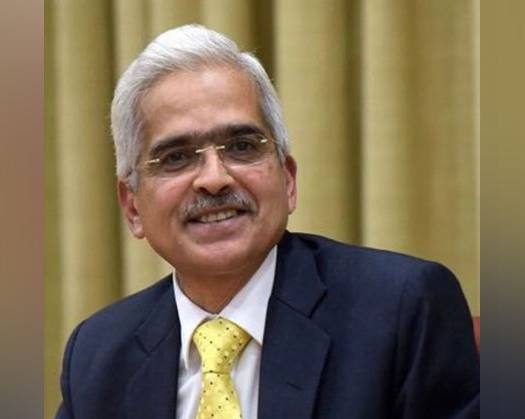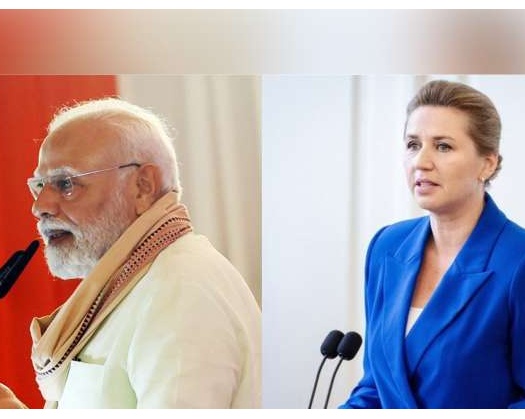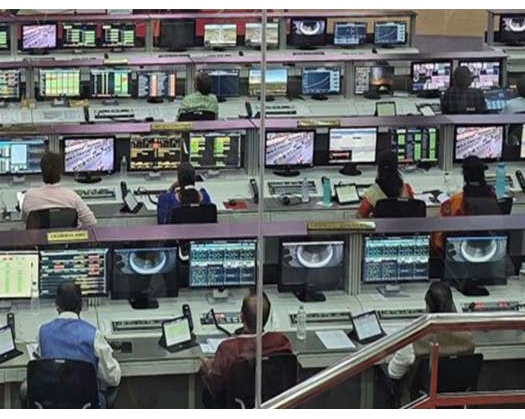New Delhi: In a recent statement, RBI Governor Shaktikanta Das underscored the intricate balancing act that the Reserve Bank of India's Monetary Policy Committee (MPC) faces during its meeting, which spanned from August 6 to 8.
The committee's fiftieth session, conducted under Section 45ZB of the RBI Act, 1934, concluded with a decision to maintain the policy repo rate at 6.5 percent, thereby continuing its policy of withdrawing accommodation.
Das remarked, "Inflation is gradually showing signs of decline, albeit at a slow and uneven pace. The durable alignment of inflation with the target of 4.0 percent remains a considerable distance away. Persistent inflation in the food sector is contributing to the persistence of headline inflation. It is imperative to anchor inflation expectations."
He further added, "It is crucial to avoid spillovers of food inflation into the core, as we are at a critical juncture. Steady growth impulses are enabling the monetary policy to clearly focus on supporting a sustained reduction in inflation towards the target. The primary role of monetary policy in fostering sustainable growth is to ensure price stability. Considering these factors, I am in favor of maintaining the policy repo rate at 6.5 percent and continuing with the stance of withdrawal of accommodation."
Dr. Michael Debabrata Patra, the Deputy Governor of the RBI, expressed concerns regarding the widening gap between headline and food inflation, which has impeded the alignment of headline inflation with the target.
He stated, "The monetary policy committee (MPC) of the RBI has committed to achieving durable alignment of inflation with the target. This objective has not yet been fully realized; any deviation from this commitment could jeopardize the prospects of the Indian economy. Therefore, I advocate for maintaining the policy rate and the stance of withdrawal of accommodation in this resolution."
The widening gap between headline and food inflation is obstructing the achievement of durable alignment of headline inflation with the target. With double-digit inflation persisting in key food categories such as cereals, pulses, spices, and vegetables, empirical evidence suggests that food inflation is becoming more persistent, taking longer to revert to its trend following a shock.
Dr. Rajiv Ranjan, a member of the MPC, noted that while the risks to the global economic outlook have increased, the domestic economy continues to demonstrate resilience. However, he highlighted that the risks to inflation currently outweigh those to growth.
He remarked, "Resilient growth provides us with the opportunity to remain focused on inflation and maintain the status quo until some of these risks are mitigated and the trade-offs are minimized."
Since the conclusion of the last monetary policy committee meeting, risks to the global economic outlook have escalated, while the domestic economy continues to show resilience. However, the risks to inflation now exceed those to growth at the margin.
Prof. Jayanth R. Varma, a member of the MPC, reiterated his concerns regarding the excessive restrictiveness of the current monetary policy and its adverse effects on growth.
He stated, "Over the recent series of meetings, I have consistently voiced concerns regarding the unacceptable trade-off in growth that is being imposed by a monetary policy that is excessively stringent."
He further elaborated, "The projections from the Reserve Bank of India (RBI) indicate that inflation fluctuates between quarters, yet there is a discernible downward trend, with an anticipated inflation rate of 4.4 percent for the first quarter of the fiscal year 2025-26. From a forward-looking perspective, the prevailing repo rate of 6.5 percent corresponds to a real rate of 2.1 percent, which is significantly above the threshold required to achieve the inflation target of 4 percent."
Dr. Ashima Goyal, a member of the Monetary Policy Committee (MPC), concurred with Mr. Varma's apprehensions and voted in favor of a reduction of 25 basis points in the repo rate, advocating for a shift towards a neutral stance. She underscored the uncertainties stemming from global factors, including the possibility of a rate reduction by the U.S. Federal Reserve, and noted the downward trend in market rates in India, attributed to the improvement in liquidity, which is a result of government spending.
She remarked, "The reduction in market rates is indicative of an improvement in liquidity, as evidenced by the call money rate being near the repo rate. This trend should be sustained. It is imperative to maintain adequate liquidity alongside prudent policies that foster a conducive environment for the financial sector, particularly in light of the limited sources of liquidity for various segments of India's financial sector, which has led to a phenomenon of liquidity hoarding."
Dr. Shashanka Bhide, another member of the MPC, supported the decision to maintain the policy repo rate at 6.5 percent. He emphasized the importance of gradually withdrawing accommodation to ensure that inflation moves in line with the target.
He stated, "The persistence of food inflation may necessitate a moderation in core inflation to ensure that the headline inflation remains close to the target. High food inflation could adversely affect growth by impacting consumption, thereby necessitating a restrictive monetary policy to mitigate core inflation, especially in the face of significant spillovers from persistent food price pressures to core components."









